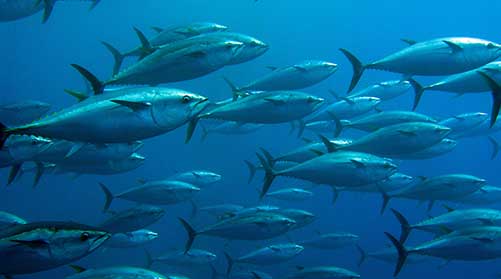How can science support marine biodiversity? At the Third United Nations Ocean Conference (UNOC3), NECCTON is putting advanced ocean forecasting at the heart of sustainable marine management.
As part of the European Digital Ocean Pavilion, NECCTON will present a major new tool that predicts the impacts of climate change on tuna stocks under different management options. Co-developed with the FAO and the South Pacific Community, this real-world application is now integrated into the EU Digital Twin Ocean, helping to inform smarter policy and fisheries management across the globe.
📍 Visit the DECIDE area of the Pavilion (9–13 June 2025) to explore the simulations and learn how NECCTON is making complex marine data accessible for decision-makers and the public alike.
Marine biodiversity will also be a key theme in expert-led panels and interactive sessions at the Pavilion:
State of the Ocean – EU-funded research on current marine ecosystems, including NECCTON’s contributions to the Copernicus Marine Service.
Advances in Biodiversity Monitoring – Innovations in ocean observation, featuring LIFE Conceptu Maris and the Fishing Vessel Ocean Observing Network.
Action for SDG 14: Solutions – Practical strategies to restore and protect marine biodiversity, including the Marine Biodiversity Observation Network (MBON).
This session will be moderated by Stefano Ciavatta (NECCTON Coordinator, Mercator Ocean International) and Frank Muller-Karger (NECCTON Advisor, USF College of Marine Science), with Henri Landes as Master of Ceremony and co-convened by Joana Soares (Air Centre).
🔗 Join NECCTON and partners at UNOC3 to explore how data-driven innovation is helping to safeguard marine biodiversity and shape a more sustainable ocean future.
https://sdgs.un.org/conferences/ocean2025

